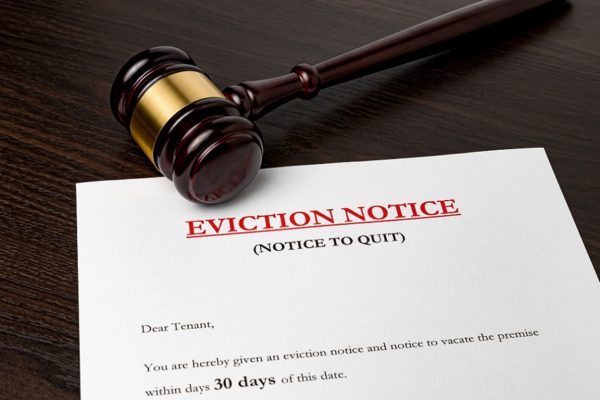Rebuilding a Life and Raising a Teenager After Nearly Being Evicted
When Michelle’s* abusive relationship ended she lost her home. Fortunately, St. Vincent de Paul helped her and her teenage daughter get into a new apartment. Though she hadn’t worked in six years, she found employment and started rebuilding her life.
However, like 40% of Americans who are unable to cover a $400 emergency expense, the threat of eviction was literally one paycheck away—for Michelle, the two-week delay before getting her first paycheck at a new job and when rent was due meant she wasn’t able to pay rent in full.
“When I first fell into this hole,” she said, “I was only a few hundred dollars behind on my rent.”
She went to her landlord and tried to work it out. “I said, ‘I have a new job and I’ll get paid in a couple weeks. I’ll get caught up,’” Michelle recounts.
Despite trying to work it out, Michelle received an eviction notice. She was distraught and overwhelmed.
“It’s a lot of stress,” she said. “Emotionally, it’s just a really tough thing to go through—trying to figure out, ‘Okay, how do we do this? … Where are we going to go? Do I put everything in storage and sleep on people’s couches?’… All of this stuff is so overwhelming.”
After receiving the eviction notice, she reached out to Seattle’s Housing Justice Project. “They said I would be a good candidate for Home Base,” she recalls. “I was, thank goodness.”
But if I had an eviction on my record, then what? How do you ever catch up…?
“My other really big fear was having an eviction on my record,” Michelle said. “Even if we got kicked out of our current place, I could go to another place. But if I had an eviction on my record, then what? How do you ever catch up, especially if you’re trying to work three jobs? I don’t even have a car to live in. I have this kid to take care of.”
Fortunately, the lawyers and people helping her through Home Base were able to do more than just get caught up on rent and pay attorney’s fees. They were also able to ensure she wouldn’t have an eviction on her record.
“I’m really grateful for Home Base,” she said. “Without it, we would’ve gotten evicted and we would’ve been out on the street. It would’ve been really bad. Plus, I would have an eviction on my record, which I want to avoid at all costs.”
Michelle is working three jobs while trying to support her teenage daughter. She’s trying to make it all work, though it’s still a lot to process and accomplish. She has hopes of returning to the small town community where her three children grew up (two of whom are young adults and living independently).
Reflecting on her life before the abusive relationship, she says, “Before, I had a fairly good job, I had a nice little place that I rented for a number of years. I was in a very different place. My kids were younger, they were all still at home.”
“Fast-forward to now,” she adds, “and oh, wow, it’s totally different. Now I’m at the food bank and I don’t know where the rent money is. Hopefully, in a few months from now I’ll be like, ‘Here I am in my swanky new office.’”
Eviction Prevention Fights Homelessness in Seattle
Eviction is a leading cause of homelessness, and one of the most effective ways to address homelessness is to prevent it from happening in the first place.
Home Base is an eviction prevention program that, though less than a year since its launch as a program, has already provided legal help to keep 1,300+ people in their homes.
The program provides a mix of one-time emergency funds, volunteer legal representation and the support of a social worker to connect people like Michelle to other services and develop a long-term plan.
*Name and image changed to protect identity





Comments